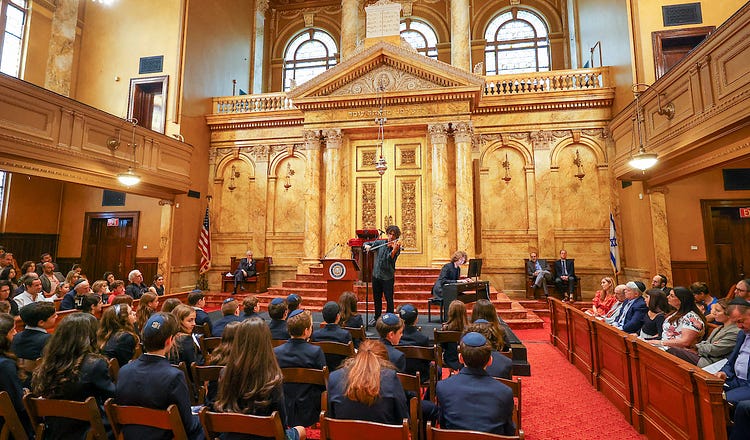Inside America’s First-Ever Classical Jewish School

Emet Classical Academy aims to blend the study of the Torah with a rich liberal arts program steeped in the Western tradition. (Rod Morata/Michael Priest Photography)
New York City parents are pulling their kids out of elite academies to enroll them in a school that promises no phones and the Pledge of Allegiance.
63
On Sunday, about forty students, aged 10 to 14, were seated front and center at the Spanish and Portuguese Synagogue on the Upper West Side. Everyone in a navy blazer. Boys in ties and button-down shirts. Girls in blue dresses.
These kids are the guinea pigs at Emet Classical Academy—the first Jewish classical school in the country, which aims to blend t…
Continue Reading The Free Press
To support our journalism, and unlock all of our investigative stories and provocative commentary about the world as it actually is, subscribe below.
$8.33/month
Billed as $100 yearly
$10/month
Billed as $10 monthly
Already have an account?
Sign In

